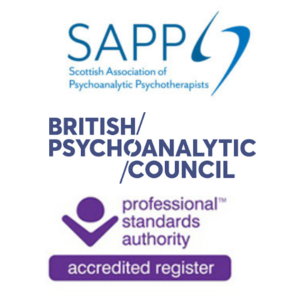What is Psychoanalytic Psychotherapy?
The treatment they developed is based on these fundamental principles:
- There is more going on in our minds than we are often aware of.
- These unconscious parts of our mind influence our life and relationships in profound ways, which are not always helpful to us and can be distressing.
- A collaborative, supportive psychotherapeutic relationship is central to getting to know the unconscious parts of ourselves and so enables a process of working through the difficulties and distress.
- Many people find that the process of self-discovery inherent in Psychoanalytic Psychotherapy not only reduces distress and alleviates symptoms but also increases our capacity to lead a more engaged and fulfilling life.
Issues Brought to a Psychoanalytic Psychotherapist
- relationship difficulties at work and/or at home
- difficulties in feeling, expressing or managing emotions
- feelings of emptiness or loneliness
- lack of motivation
- low self-esteem
- struggles with assertiveness
- recent distressing life events, such as divorce or bereavement
- past trauma or abuse
- depression or anxiety
Psychoanalytic Psychotherapy for Personal Development
The benefits of seeing a Psychoanalytic Psychotherapist can go beyond the alleviation of symptoms or easing of emotional distress. It can offer the opportunity to explore the unknown, unconscious parts of ourselves. By offering a confidential, safe space to ' free associate' or say whatever is on our mind, it is possible to discover these hidden parts of ourselves and the surprising, though not always helpful ways they influence our emotions, thinking, decisions and relationships with others.
This process of self- discovery can at times be challenging but it is also immensely freeing and creative. Enabling a depth of sensitivity about ourselves and others that helps us to engage in life and relationships in a more fulfilling way.


